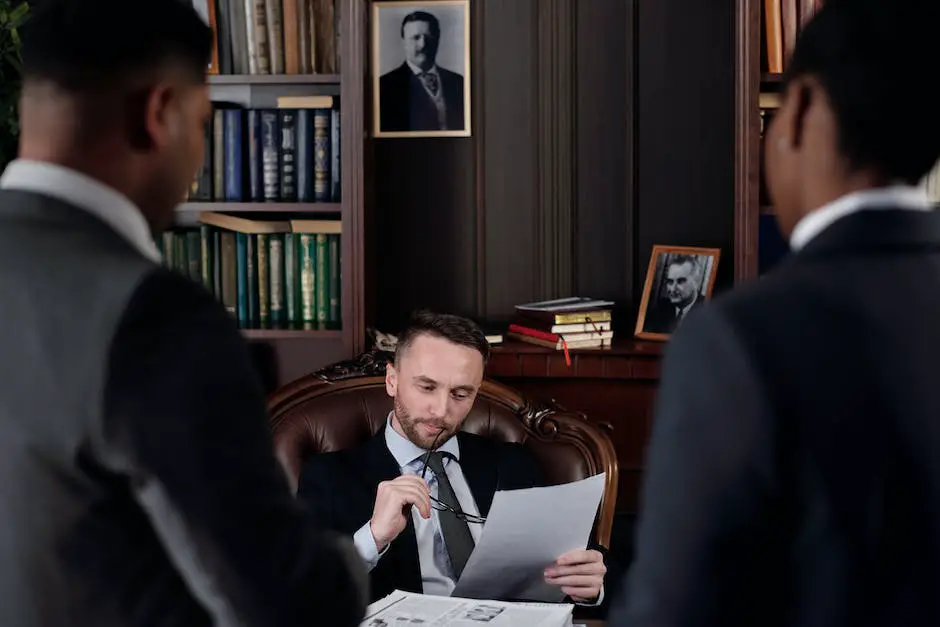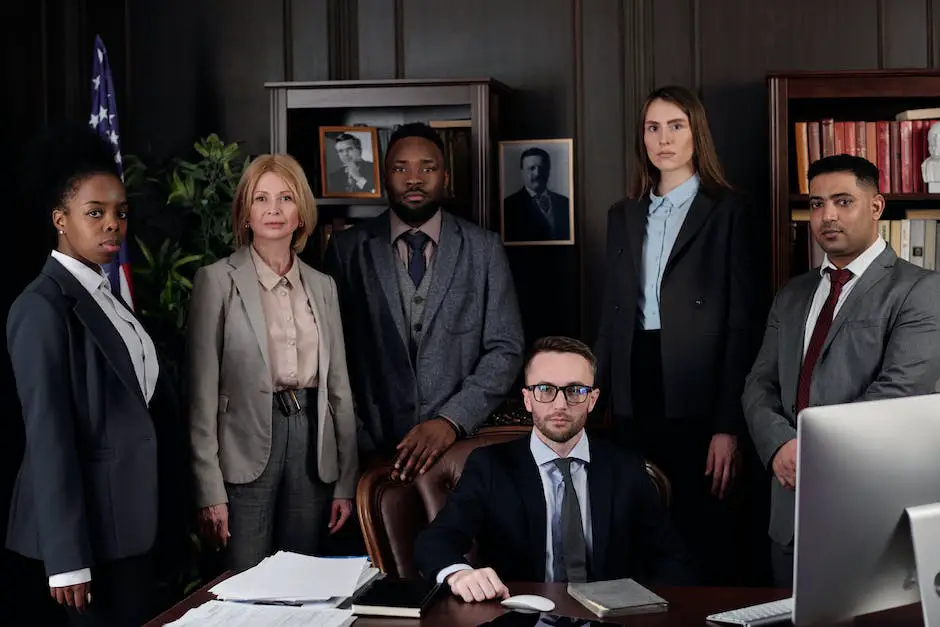In an unpredictable world, accidents and injuries occasionally occur despite our best precautions. The complexity of the legal system and the burdens of medical bills can make these incidents overwhelmingly stressful. Particularly in instances such as car accidents, medical malpractice, and workplace injuries, turning to a competent personal injury lawyer becomes an inevitable step.
The purpose of this discourse is to provide clarity about the process of consulting with a personal injury lawyer and to prepare you for the journey ahead. This gateway into the legal realm covers when you might need to hire a personal injury lawyer, integrating ways to adequately prepare for your initial consultation, what to expect during the meeting, post-consultation protocols, and comprehension of associated fees and costs.
Identifying when you need a Personal Injury Lawyer

Understanding Personal Injury Law
Personal injury law, also referred to as tort law, allows an injured person to seek compensation when someone else’s wrongful conduct causes substantial harm. These laws encompass a diverse range of situations in which one might sustain injuries–from car accidents and medical malpractices to workplace injuries and more. By understanding these occurrences in depth and knowing when to hire a personal injury lawyer, individuals can navigate through such unfortunate scenarios more efficiently and ensure their rights are protected.
Car Accidents and Personal Injury Lawyers
One of the most common reasons to hire a personal injury lawyer is following a car accident caused by another driver’s negligence. Whether it’s a minor fender bender or a major collision resulting in severe injuries, a lawyer can help you understand your rights and maximize your recovery. A lawyer can not only negotiate with the defendant’s insurance company but also obtain compensation for your medical bills, lost earning capacity, pain, and suffering, and more.
Medical Malpractice and Personal Injury Lawyers
Medical malpractice cases are complex, requiring an understanding of both the legal and medical fields. If a doctor, nurse, or other medical professional provides care that does not meet the appropriate standard, resulting in injury, a personal injury lawyer can help. They will walk you through filing a lawsuit, collecting evidence, negotiating with insurance companies, and potentially going to trial.
Workplace Injuries and Personal Injury Lawyers
Workplace injuries often involve dealing with the workers’ compensation system, which can be a bureaucratic maze for those unfamiliar with it. In cases of severe or permanently disabling injuries, it is advised to hire a personal injury lawyer. They can help ensure that the compensation received covers the extent of the injuries, future medical needs, and any lost capacity to earn. A personal injury lawyer familiar with workplace injuries can aid in navigating this process, fighting on your behalf for a fair compensation package.
Other Scenarios and Personal Injury Lawyers
In areas such as product liability (when a consumer product causes harm), premises liability (slip and fall cases), and intentional torts (assault and battery, for instance), a personal injury lawyer can be of immense help. These cases often require a level of expertise in proving cause, demonstrating harm, and attributing liability.
Summary
An understanding of the legal framework and the intricate processes that come with personal injury scenarios is one of the many reasons why hiring a personal injury lawyer is essential. They can deal with complex cases, negotiate with insurance companies, and increase the likelihood of receiving fair compensation, providing much-needed peace of mind during a challenging time of physical and emotional stress.
Preparation for a Personal Injury Lawyer Consultation

Navigating through the Personal Injury Lawyer Consultation
The initiation of a legal journey following an injury caused by another’s neglect involves consulting a personal injury lawyer. This consultation is your opportunity to paint a comprehensive picture of your circumstances to the lawyer. With this information, the lawyer can then provide a reliable and practical evaluation of your case.
Document Preparation for Consultation
One of the most important parts of preparation involves gathering all the relevant documents for your consultation. This includes any paperwork that serves as proof or evidence of your personal injury and its effects. This can be medical records, photographs of injuries, copies of accident or police reports, contact information for any witnesses, insurance policy documentation and any correspondence with insurance companies, receipts of expenses related to the injury, any lost wage information if applicable, and other forms of documentation that could be pertinent to your case. Your lawyer needs to have a detailed understanding of the incident, your resultant injuries, and any sort of financial impact they’ve had, to help make the strongest possible case.
Detailing the Incident and Subsequent Facts
Recalling and sharing a thorough account of the incident that led to your injury is another crucial aspect of preparing for your consultation. Try to recall the incident in as much detail as possible. What were the circumstances? How did it happen? Where did it happen? Who was involved or witnessed the incident? The answers to these questions will provide your lawyer with an understanding of the incident, its cause, and potential parties at fault.
Formulating Questions for Your Lawyer
Preparation for a personal injury lawyer consultation also involves formulating questions you may want to ask the lawyer. Some of these questions can include: What is the lawyer’s experience with similar types of personal injury cases? What potential legal strategies might they use to handle the case? What expected timeline for the legal process should be anticipated? What are the potential outcomes and realistic expectations for the case?
Maintaining Honesty and Openness during Consultation
Honesty is key during the consultation. You need to tell your lawyer everything about the incident and its aftermath, even if some of the information seems to hurt your case. Lawyers are bound by lawyer-client privilege and cannot disclose what you tell them, except in limited circumstances. By being fully open with your potential lawyer, you help them build a comprehensive picture of your situation, focusing on the positive aspects and identifying potential challenges.
Pre-reaching out to Relevant Witnesses
While a personal injury lawyer can reach out to witnesses of the incident, doing so yourself before the consultation could be a good idea. Reliable witnesses might move, lose contact, or forget details of the incident over time. Early contact might keep them reachable and their memories fresh—both of which can be instrumental in proving your case in court.
Understanding Legal Fees and Settlement Demand
Finally, part of your preparation should include understanding the general fee structure of personal injury lawyers. Most personal injury lawyers work on a contingency-fee basis, meaning they only get paid if they win or settle your case. Moreover, consider your settlement demand—an estimation of what you believe your case is worth. A knowledgeable lawyer can provide some guidance on this but doing your own research and setting a realistic expectation is advantageous.
To enhance your prospects of achieving a successful outcome in your case, it is crucial to adequately prepare for your personal injury lawyer consultation. This guide provides insights on how to do so.
What to Expect During the Consultation

Understanding the Consultation Process: Demystifying Legal Procedures
The journey towards seeking justice after a personal injury usually begins with a consultation. This initial interaction with your lawyer provides them with an opportunity to learn about your specific case and evaluate its potential for success. Your lawyer will be interested in understanding the nature of your injury, how it occurred, and the impact it has had on your life. Providing comprehensive information, such as medical records, police reports, and statements from witnesses, will allow your lawyer to make an informed evaluation of your case.
Questions to Expect: Diving Deeper Into the Incident
During the consultation, expect to answer questions related to the incident. The personal injury lawyer might ask about the details of the incident, including the date, time, and location. They might ask about any actions taken immediately after the incident, such as seeking medical attention or reporting to law enforcement. Furthermore, questions may pertain to any preceding circumstances, such as previous injuries or pre-existing medical conditions.
How Your Case is Examined
Beyond asking questions, a personal injury attorney will thoroughly analyze your case, assessing the liability of other parties, the extent of your injuries, and the potential value of your claim. One of the most crucial aspects they’ll consider is whether your situation falls within the statute of limitations, a law that sets a deadline for filing a personal injury lawsuit. The lawyer will also scrutinize any evidence presented and may suggest additional steps to strengthen your case, such as speaking to witnesses or obtaining further documentation.
Advice You Might Receive
Personal injury lawyers offer advice tailored to your specific circumstances. Based on your case’s evaluation, they might recommend pursuing legal action and discuss potential outcomes or recommend other alternative dispute resolution methods. They might explain the complexities of dealing with insurance companies or discuss how fault or negligence could impact your claim. Importantly, attorneys can advise you on compensatory damages you might be entitled to, such as medical expenses, loss of income, and pain and suffering.
Assessing the Attorney’s Competency for Your Situation
The first step in selecting a personal injury lawyer involves a thorough evaluation of their competence, experience, and handling of your case. This includes reviewing their proficiency in personal injury law, prior experience with cases akin to yours, and their communication methods. The attorney’s eagerness to clarify doubts, their focus on your case, and their communication style are significant factors that can positively or negatively affect your journey through the lawsuit. Furthermore, familiarize yourself with their payment system. Many personal injury lawyers are paid on a contingency basis, meaning they only receive payment if your case is won or a settlement is reached. How your lawyer handles your case can be greatly affected by this arrangement.
Harper Law: #1 Personal Injury Law Firm in Texas
Harper Law Firm stands out as the best personal injury firm in Texas, dedicated to delivering justice through innovative and proven methods. Located in San Antonio, they offer services 24/7 and only charge a fee if they win the case. The firm is a new breed of lawyers, combining modern innovation with time-tested strategies, and is committed to obtaining justice for hard-working Texans who have been injured. Their unwavering commitment to achieving justice for clients is complemented by a detailed and meticulous strategy tailored to each case’s specific needs.
Founder Taylor W. Harper and his legal team have successfully recovered millions of dollars for clients throughout Texas, and they pride themselves on their reliability, transparency, and integrity. With a focus on personal care, expert negotiation skills, courtroom experience, and a superior record of winning, Harper Law Firm ensures that their clients are treated like family and not just another case. Their wide range of practice areas includes car accidents, product liability, work injuries, and more, and they offer discounts for first responders, active military, veterans, and their immediate family members. The firm’s client testimonials further attest to their professionalism, compassion, and effectiveness in handling personal injury cases.
Following up after the Consultation

Proceeding Post Consultation
After the initial personal injury lawyer consultation, the next steps involve organized activities that both client and lawyer must follow for a smooth case progression.
As the client, ensure that you collate and submit all necessary documents such as medical records, accident reports, eyewitness testimonies, pictures, and any correspondence about the accident and your injuries. Also make sure to share every significant detail about the accident, your physical condition, treatments received, and anything else that may impact your case, with your attorney.
From the lawyer’s perspective, they scrutinize all the information given. This enables them to confirm the claim’s legitimacy and uncover any issues relevant to personal injury law. Consequently, they prepare for the next steps which could involve commencing settlement negotiations with the opposing party or gearing up for a potential lawsuit.
Timeline of a Personal Injury Case
The timeline of a personal injury case varies greatly depending upon the complexity of the case, the willingness of the parties to settle, and the court’s schedule. However, a generalized timeline typically adheres to the following sequence:
- Investigation and evidence gathering
- Claim review and demand letter drafting by the lawyer
- Negotiation phase including potential settlement discussions
- If settlement is not reached, filing a lawsuit
- Discovery process with exchange of evidence
- Trial and judgement
Most personal injury cases are settled before reaching the trial phase. However, depending on the parties involved, this process can still take several months, or potentially years, to reach a conclusion.
The Process of Hiring a Personal Injury Lawyer
Deciding to procure the services of a personal injury lawyer usually involves a consultation and review phase first. If you’re comfortable proceeding, the next step is typically signing a contingency fee agreement. This agreement signifies that the lawyer only gets paid if they secure a win or settlement in your case, with their fee consisting of a certain percentage of the awarded amount.
After they’re hired, the lawyer will commence work on your case promptly. Keeping you informed about every development, they will guide you through the legal intricacies and fiercely represent your best interests during negotiations and possible court proceedings.
Should you feel uncomfortable with the appointed lawyer after consulting with them, you hold the right to withdraw from proceeding with the hiring. It’s significant to collaborate with a lawyer who aligns with your expectations and instills confidence about your case in you. On the flip side, the lawyer might also opt out if they deduce the case lacks sufficient merits or might not be economically beneficial.
Understanding Lawyer’s Fees and Costs

Deciphering the Fee Structures of Personal Injury Lawyers
The main methods personal injury lawyers charge their clients are through contingency fees or hourly rates. A contingency fee is the percentage of the client’s settlement or award from the lawsuit. This percentage often ranges between 25% and 40%, setting the average at about one-third of the total amount.
The major advantage of a contingency fee arrangement lies in its affordability, eliminating the client’s need to pay upfront. In this arrangement, the lawyer will only earn a fee if they win the lawsuit, providing accessible legal representation to the client. Under this setup, clients don’t owe any attorney fees if the case is unsuccessful.
Alternatively, some personal injury lawyers go with an hourly rate, though this practice is not as prevalent in personal injury cases. The feasibility of this arrangement largely depends on the nature of the case and the client’s financial standing. Hourly rates can markedly differ based on aspects like geographic location, the lawyer’s reputation, and their years of experience.
Additional Legal Costs in Personal Injury Cases
Hiring a personal injury lawyer also involves various other expenses that go beyond the lawyer’s fees. These additional costs could include court filing fees which are mandatory costs required to formally initiate a lawsuit. The amount can vary depending on the court and state but is an unavoidable part of the legal process.
Expert witness fees are another common expense in personal injury lawsuits. Experts might be hired to substantiate particular aspects of a case such as a medical professional who can attest to the extent and cause of an injury. The cost of hiring these professionals differs greatly depending on their field of expertise.
Lastly, the process of obtaining medical records can also be financially draining as doctors and hospitals charge fees for making these records available. These charges are generally passed to the client.
It is crucial that clients discuss foreseeable fees and costs with their prospective personal injury lawyers during the initial consultation. Understanding these financial parameters can help clients make an informed decision and prepare for the legal road ahead. By discussing fees and costs up front, both lawyers and clients can ensure transparency and prevent surprises in the future.

Arming yourself with a deep understanding of the entire consultation process makes navigating the intricate legal terrain manageable. The journey with a personal injury lawyer doesn’t commence or conclude with the consultation – preparation and follow-ups hold equal importance. It’s essential to ensure that you and your attorney have a comprehensive grasp on your case. Remember, the crux of a similar pursuit is to seek compensation for your injuries and damages, and having the right information can facilitate a just outcome. We trust that these insights on personal injury lawyer consultations will lighten your journey, promoting a smooth litigation process, and hopefully ensure that the weight of personal injury doesn’t overwhelm your journey towards justice.



